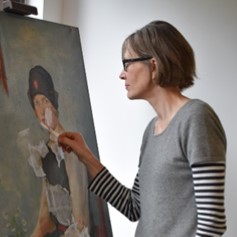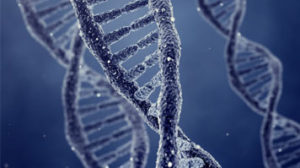Following his spell binding presentation last year at the University of London, The International Institute of Peace Studies (Scotland) and the Swiss Cottage Community Centre (London), sensei Corky Quakenbush is back in London to teach his innovative approach to Aikido known as Aiki-Lab – the result of more than thirty years of practice and research.
Sensei Corky classes are open to all – complete beginners and practitioners alike.
While most forms of Aikido are taught through the repetitive emulation of stereotyped katas, Aiki-Lab does not rely on such pre-planned techniques; its focus is on the flow of energy arising from the intentions of those involved, in order to create a space for aiki to manifest. In other words, the goal of Aiki-Lab is to develop a presence that allows for a “center-to-center” connection with an opponent leading to a spontaneous, harmonious response to an attack – known as an aiki resolution.
Following his spell binding presentation last year at the University of London, The International Institute of Peace Studies (Scotland) and the Swiss Cottage Community Centre (London), sensei Corky Quakenbush is back in London to teach his innovative approach to Aikido known as Aiki-Lab – the result of more than thirty years of practice and research.
Sensei Corky classes are open to all – complete beginners and practitioners alike.
While most forms of Aikido are taught through the repetitive emulation of stereotyped katas, Aiki-Lab does not rely on such pre-planned techniques; its focus is on the flow of energy arising from the intentions of those involved, in order to create a space for aiki to manifest. In other words, the goal of Aiki-Lab is to develop a presence that allows for a “center-to-center” connection with an opponent leading to a spontaneous, harmonious response to an attack – known as an aiki resolution.
Following his spell binding presentation last year at the University of London, The International Institute of Peace Studies (Scotland) and the Swiss Cottage Community Centre (London), sensei Corky Quakenbush is back in London to teach his innovative approach to Aikido known as Aiki-Lab – the result of more than thirty years of practice and research.
Sensei Corky classes are open to all – complete beginners and practitioners alike.
While most forms of Aikido are taught through the repetitive emulation of stereotyped katas, Aiki-Lab does not rely on such pre-planned techniques; its focus is on the flow of energy arising from the intentions of those involved, in order to create a space for aiki to manifest. In other words, the goal of Aiki-Lab is to develop a presence that allows for a “center-to-center” connection with an opponent leading to a spontaneous, harmonious response to an attack – known as an aiki resolution.
Following his spell binding presentation last year at the University of London, The International Institute of Peace Studies (Scotland) and the Swiss Cottage Community Centre (London), sensei Corky Quakenbush is back in London to teach his innovative approach to Aikido known as Aiki-Lab – the result of more than thirty years of practice and research.
Sensei Corky classes are open to all – complete beginners and practitioners alike.
While most forms of Aikido are taught through the repetitive emulation of stereotyped katas, Aiki-Lab does not rely on such pre-planned techniques; its focus is on the flow of energy arising from the intentions of those involved, in order to create a space for aiki to manifest. In other words, the goal of Aiki-Lab is to develop a presence that allows for a “center-to-center” connection with an opponent leading to a spontaneous, harmonious response to an attack – known as an aiki resolution.
Following his spell binding presentation last year at the University of London, The International Institute of Peace Studies (Scotland) and the Swiss Cottage Community Centre (London), sensei Corky Quakenbush is back in London to teach his innovative approach to Aikido known as Aiki-Lab – the result of more than thirty years of practice and research.
Sensei Corky classes are open to all – complete beginners and practitioners alike.
While most forms of Aikido are taught through the repetitive emulation of stereotyped katas, Aiki-Lab does not rely on such pre-planned techniques; its focus is on the flow of energy arising from the intentions of those involved, in order to create a space for aiki to manifest. In other words, the goal of Aiki-Lab is to develop a presence that allows for a “center-to-center” connection with an opponent leading to a spontaneous, harmonious response to an attack – known as an aiki resolution.
Following his spell binding presentation last year at the University of London, The International Institute of Peace Studies (Scotland) and the Swiss Cottage Community Centre (London), sensei Corky Quakenbush is back in London to teach his innovative approach to Aikido known as Aiki-Lab – the result of more than thirty years of practice and research.
Sensei Corky classes are open to all – complete beginners and practitioners alike.
While most forms of Aikido are taught through the repetitive emulation of stereotyped katas, Aiki-Lab does not rely on such pre-planned techniques; its focus is on the flow of energy arising from the intentions of those involved, in order to create a space for aiki to manifest. In other words, the goal of Aiki-Lab is to develop a presence that allows for a “center-to-center” connection with an opponent leading to a spontaneous, harmonious response to an attack – known as an aiki resolution.
Following his spell binding presentation last year at the University of London, The International Institute of Peace Studies (Scotland) and the Swiss Cottage Community Centre (London), sensei Corky Quakenbush is back in London to teach his innovative approach to Aikido known as Aiki-Lab – the result of more than thirty years of practice and research.
Sensei Corky classes are open to all – complete beginners and practitioners alike.
While most forms of Aikido are taught through the repetitive emulation of stereotyped katas, Aiki-Lab does not rely on such pre-planned techniques; its focus is on the flow of energy arising from the intentions of those involved, in order to create a space for aiki to manifest. In other words, the goal of Aiki-Lab is to develop a presence that allows for a “center-to-center” connection with an opponent leading to a spontaneous, harmonious response to an attack – known as an aiki resolution.
The satellite business is much larger than many of us realise. This talk will describe the history of geostationary communications satellites, from concept to implementation, before concentrating on the operations of British company Inmarsat, and the role that it was able to play in the mystery of Malaysia Airlines Flight 370. The speaker, Emanuele Guariglia, is Director, Earth Stations Engineering at Inmarsat.
Are we alone in the Universe: the strange case of KIC 8462852 – a talk by Dr William Whyatt in the ‘Mondays@Mills’ series at Highgate School.
Mondays @ the Mills: A history of climate change: why planet Earth is habitable |
|||
| 20th March 2017
A history of climate change: why planet Earth is habitable Earth has been inhabited by life for almost 90% of its 4.5 billion year existence. The picture of a barren, volcano- and lava-rich landscape was therefore only true for a very short time. Given that life requires fairly narrow climatic and chemical conditions, this means that the Earth’s climate has been remarkably stable for most of its life. This cannot simply be a coincidence, and therefore means that there must be active climate-stabilising mechanisms. This talk will examine these mechanisms, both in the past and what they mean for the future of our existence. Talks take place on Mondays at 7pm in the AV Room in the Mills Centre. Refreshments, including wine, are available from 6.30 pm and afterwards. |
|||
Mondays @ the Mills: The geography of wine |
|||
| 3 July 2017
The geography of wine Phil Harrison, Highgate School Talks take place on Mondays at 7pm in the AV Room in the Mills Centre. Refreshments, including wine, are available from 6.30 pm and afterwards. |
|||
Mondays @ the Mills: Women and revolution from the bluestockings to Virginia Woolf |
|||
| 18 September 2017
In an exciting and engaging lecture illustrated by contemporary cartoons, Highgate’s Head of History and Foundation Historian Dr Benjamin Dabby will draw upon his ground-breaking research into the culture of Britain’s ‘long nineteenth century’ to overturn the conventional account that women were confined to the domestic sphere and excluded from public life. In revealing a world in which public debate about the progress of the nation was shaped increasingly by women, he will show how women’s and men’s gendered identities were as hotly debated then as they are today. Dr Dabby’s latest book: Women as Public Moralists in Britain has been published recently by the Royal Historical Society, and copies will be on sale for £30. Talks take place on Mondays at 7pm in the AV Room in the Mills Centre. Refreshments, including wine, are available from 6.30 pm and afterwards. |
|||
Mondays @ the Mills: Ecuador & the Galápagos |
|||
| 9 October 2017 Dr Scott Crawford and Dr Ben Weston, Highgate SchoolThe Biology department organises biennial international expeditions for sixth form pupils; past visits include Honduras in 2012 and Madagascar in 2015. This year a party of twenty four pupils visited the Amazonian region of Ecuador and the Galápagos Islands to take part in active conservation research in association with a group of university scientists. In this presentation, the group leaders, Dr Crawford and Dr Weston, will review the expedition and outline the biological significance of the various habitats that the pupils explored.
Talks take place on Mondays at 7pm in the AV Room in the Mills Centre. Refreshments, including wine, are available from 6.30 pm and afterwards. |
|||
Free and open to all but do phone to book your place. In these lively debates, prominent and informed speakers argue their points of view on issues of current importance. They are ‘seconded’ by pupils from local schools, and audience members also have the opportunity to sway the opinion of those attending.
The motion: This House Believes that Gender Equality is Unachievable
Proposing: Ann Hussey, QC and barrister specialising in family law
Opposing: Vicky Pryce, economist and former joint head of the UK government economic service
The 10th Annual Kyffin Williams Lecture: Conservation Challenges
Jenny Williamson, Easel Painting Conservator
Jenny Williamson has come to know Kyffin Williams’s pictures well through her work at galleries across Wales. In this talk to mark Kyffin’s centenary year she will answer questions such as ‘what does an art conservator do?’ ‘what does she aim to achieve?’, ‘what techniques does she use?’ and ‘what pitfalls does she need to avoid?’
Talks take place on Mondays at 7pm in the AV Room in the Mills Centre. Refreshments, including wine, are available from 6.30 pm and afterwards.
Forensic Science – DNA Evidence
Dr Georgina Meakin, University College London
TV shows would have us believe that DNA found at crime scenes always comes from the offender. This is incorrect and Dr Meakin’s talk will explain why advances in DNA profiling technology are actually making it harder to solve crimes. She collaborates with DNA experts from across the world on research into the transfer and persistence of DNA and other trace evidence.
Talks take place on Mondays at 7pm in the AV Room in the Mills Centre. Refreshments, including wine, are available from 6.30 pm and afterwards.
Play is a normal way for humans to engage with their environment and subsequently acquire knowledge as well as develop competences. Digital technologies have pushed the potential for games into areas where people engage with one another in virtual and augmented reality. The aim of this talk is to share insights into how games are shaping society and to explore the benefits whilst discussing the potential drawbacks.
Lecture by Manuel Oliveira
Votes for Women: a brief historyElizabeth Crawford An illustrated talk on the history of the women’s suffrage movement, 1866-1928, with mention of the part north London played in the campaign. Elizabeth Crawford is the author of several books on the women’s suffrage movement. Her latest book is Art and Suffrage: a biographical dictionary of suffrage artists. She is also a dealer in books and ephemera by and about women, specialising in suffrage memorabilia. Talks take place on Mondays at 7pm in the AV Room in the Mills Centre. Refreshments, including wine, are available from 6.30 pm and afterwards. |
|||
Sensei Corky Quakenbush (Los Angeles) is back in London to present his unique Aiki-Lab method – at the Highgate Civic and Cultural Centre.
Complete beginners are especially welcome! No Aikido technique, throw, fall or force is strictly necessary!
Corky is the mastermind of the ground-breaking approach to Takemusu Aikido known as AikiLab – a YouTube sensation. Whereas most forms of Aikido are taught through the repetitive emulation of katas or techniques, his approach does not rely on such stereotypes. Instead, the main focus of Aiki-Lab is on the flow of energy arising from the intentions of those involved in a confrontation…
Corky’s re-invention of the Art – the result of more than thirty years of practice and research – his unique gift for teaching, allied to a friendly and open personality, has led to a growing demand for his teaching world-wide.
In this hands-on presentation, you will understand how certain intentional moves which channel beneficent intention towards an opponent, often lead to a safe and harmonious resolution of an attack.
Please book ASAP!
Five £10 concessions available. Please e-mail us in advance.







